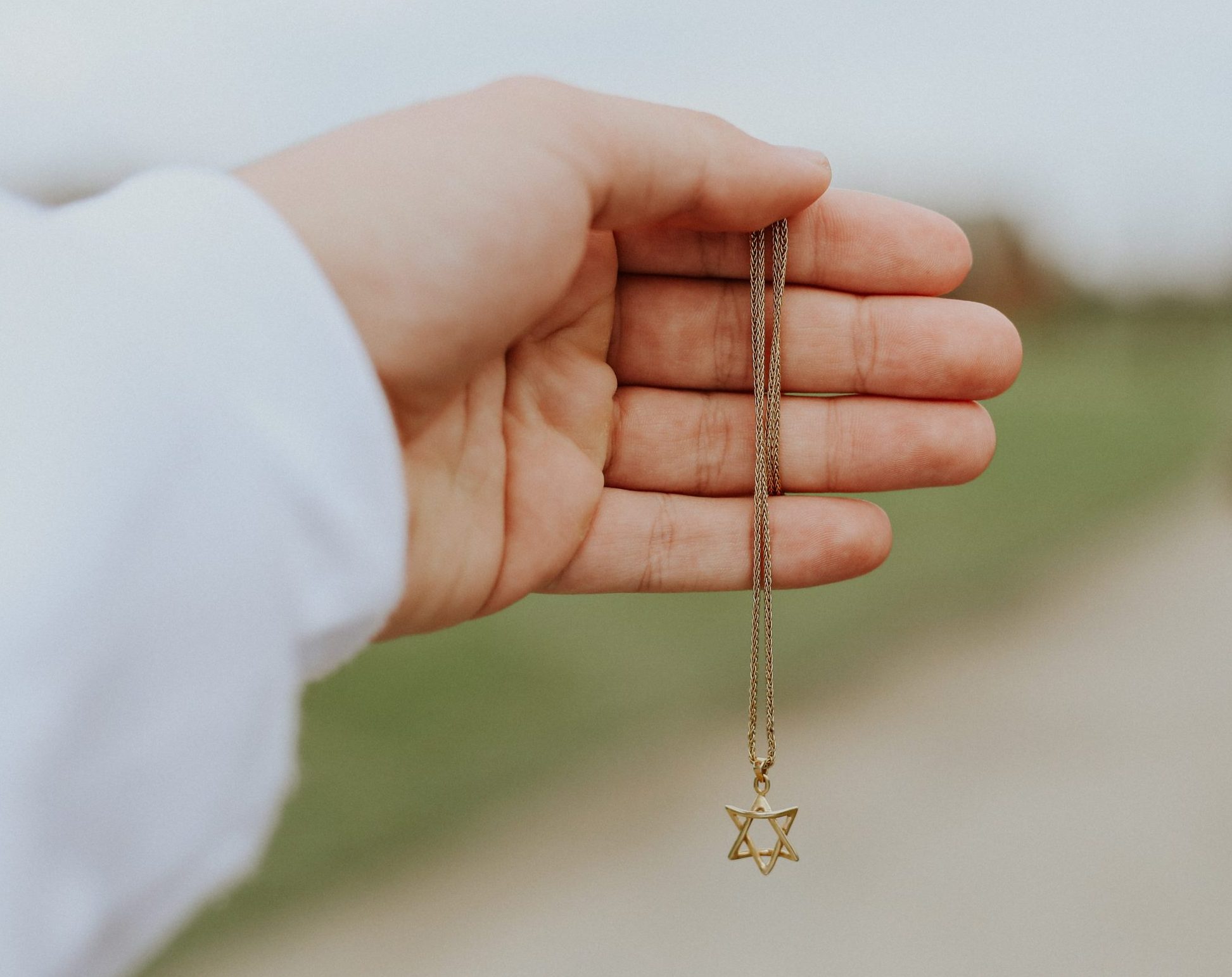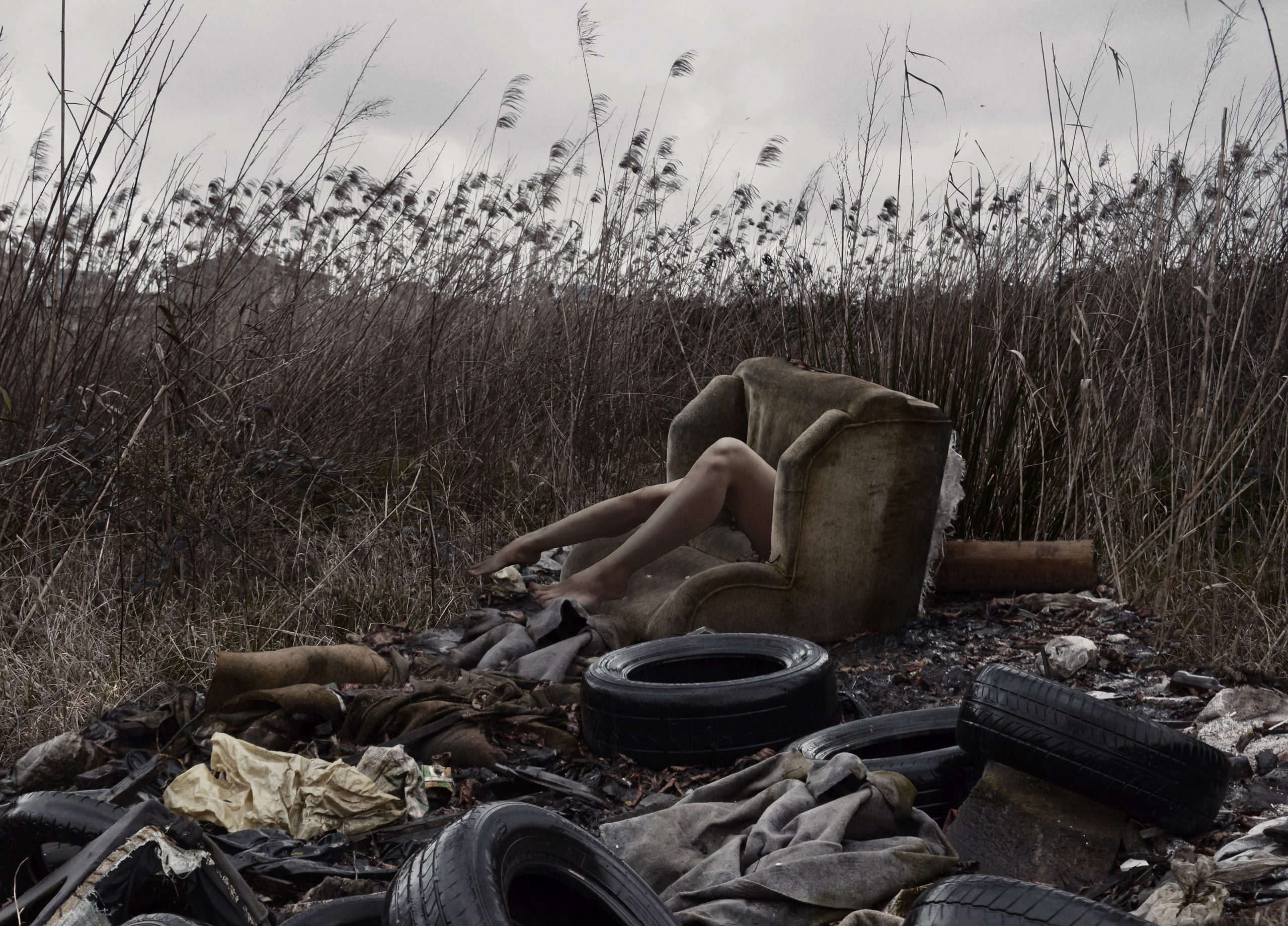Interviews
Who Is a “Bad Jew”?
Emily Tamkin on the evolution of American Jewish identity

Guess I’m a Bad Jew. That’s the same refrain I give when I sprinkle cheese on tacos or forget the second verse of the kiddush.
This line is repeated across the Jewish world so consistently that it feels like an ontological category, an objective measure of a class of Jews who simultaneously embarrass our people and to which we secretly belong. But in the ever evolving world of Jewish tradition, there really is no one way of doing things, no perennial and unchanging standard, so why all the shame?
As Emily Tamkin unpacks in her new book Bad Jews: A History of American Jewish Politics and Identities, the label is more about how some people seek to marginalize opponents inside the Jewish world, and who we decide are representative of the type of Jewishness we want to survive. Whether it is right-wing Zionist leaders lobbing criticisms at anti-Occupation activists, or progressive Jews decrying the assimilationism of their wealthy counterparts, the question of who is a “real Jew” is one that has deep connections to exactly who is in charge of our Jewish future.
I talked with Tamkin about what the term has started to mean for American Jews, how their experience has changed, and just how many types of Bad Jews there are.
Shane Burley: So where did the idea for Bad Jews come from?
Emily Tamkin: Two things happened in tandem. The first is that I had written my first book, which was on George Soros and trying to understand what his influence actually was and unpacking why he’s such a lightning rod for conspiracy theories. One right-wing response was that attacks against him aren’t antisemitic because he’s not really Jewish. That those attacking him don’t even really think of him as Jewish because he doesn’t go to synagogue or because of his relationship to Israel, that he doesn’t mostly give to Jewish causes, and therefore it’s not antisemitism. I did an interview around the book and someone on Twitter, whom I will not name, tweeted that it was a horrible interview because “a lot of very Jewy Jews don’t like Soros.” And I was like, did you just pull Jewish rank?
This really upset me. And then I considered, “is this really upsetting me because of Soros? Or is this really upsetting me because of me and my own life and feelings about American Jewishness?” I kind of knew that this was not a unique moment—I am not the only person who has had feelings about American Jewishness and my place in it!—and thought that perhaps by zooming out a bit and understanding American Jewish history I can better understand this fraught and contentious moment as one of a series of fraught and contentious moments over what it means to be Jewish in America.
SB: Give me the anatomy of a Bad Jew. What kind of things do people get singled out for, or single themselves out for, as Bad Jews?
ET: I make the case in the book that there really is no such thing as a Bad Jew, or, if you prefer, that there are infinite types of Bad Jews. It all depends on where you sit. So it’s not a useful phrase. Having said that, far and away the most common answer from my interviewees to my question “what do you think of when you think of a bad Jew?” was “oh, I think of myself.”
There’s clearly something deeply internalized in many of us. In moments when I myself have thought I was a Bad Jew, it was because I felt like I was doing something different from a larger community. Which is silly because if you look at Jewish history, there are many moments in which people are breaking away from the community. That’s a Jewish tradition too.
There’s the Jewish observation spectrum. I eat shrimp: I’m a Bad Jew. I only joined a temple pretty recently and I didn’t grow up going to shul: Bad Jew. Intellectually, I really disagree with this interpretation, even if, in my life, it has made sense to me. I think often when you have people of different denominations come together, it’s sort of assumed that the more observant is the better, more pure form of Jewishness. I disagree with this, too.
The other universe where the phrase Bad Jew exists is the political. During the Trump years, you would have liberal-left people saying that Stephen Miller is the worst possible Jewish person, because how could you learn Jewish history and learn about persecution and fleeing for refuge and turn out to be Stephen Miller? I think to many people his politics were a refutation of what they felt were Jewish values. On the other hand, you have people who look at Jews who criticize Israel and say “How could you turn your back on your fellow Jews?”
SB: Is the most profound contention in this equation the question of who is a Jew?
ET: The question of Bad Jews and the question of who is a Jew are interrelated.
When Matthew Bronfman, the new head of the Hillel Board of Governors, was asked in an interview what kept him up at night and he said that American Jews’ connection to Israel and intermarriage, and that these two things are connected. Do I think that this is the most productive use of Mr. Bronfman’s sleepless hours? No, I do not. But, again, that’s his truth.
Years back, Ben Shapiro tweeted that there have always been Bad Jews and in the United States Bad Jews vote for Democrats. And now you have people making arguments that perhaps these aren’t even really Jews because they’re making arguments that others disagree with. So I do think this phenomenon is happening, that the claim of Bad Jews is also about defining some people out of Jewish identity.
Do I think that it will fundamentally change American Jewishness? Yes, but I think that it’s always been fundamentally changing. Obviously I get frustrated by much of the discourse today and find it alienating and unproductive, such as the shouting back and forth about who is the real Jew. That’s not really a way to reach understanding, better policy, or any goal you might have. Unless, of course, your goal is to narrow or limit who feels welcome in your conversation, which I think, for some, particularly on the political right (though not exclusively), is indeed their agenda. But I don’t really think that it means this is going to be the end of American Jewishness. I think that people who think this is the end should read my book. They will see that there have been many other moments in the last century where people have also been convinced that something was going to irreparably and fundamentally change American Jewish life that there would be no more American Jewish life. I think in a certain sense we have simply found new ways to have the same arguments.
SB: What features do you think people typically associate with American Jewish identity? And when you talk about changing Jewish life, how is it changing and what kind of positive differences might be in store in the coming years.
ET: There are a few stereotypical stories about American Jews, and I sort of disagree with all of them.
There is one that says that American Jews came to this country, worked really hard, and rose to the top, which is not precisely what happened. There’s a story that says American Jews are basically just like every other person in America, but they eat bagels, which is not exactly what’s going on here either. (Or, maybe for some people, this is actually a meaningful expression of Judaism for you, which actually I think is fine. Go forth and nosh.) There is the one that says American Jews are weak, rich, and lazy and that the true fighting Jews are over in Israel, which I also, surprise, think is problematic. There are all these simple cliches that come to mind. So I am not going to answer what a “real” American Jew is because I don’t think there is such a thing. Part of the reason that I wrote this book was to present some of these narratives and then complicate them.
The claim of Bad Jews is also about defining some people out of Jewish identity.
There is a lot of talk now about American Jewish institutions and American Jewish participation. This is a common critique that says that people no longer want to participate in civic life anymore as American Jews. After having written this book, I don’t think that’s true at all. I think the ways that we participate might change, certainly. I understand that synagogue membership is declining. Perhaps people are turning less to the establishment institutions, but I see so many people finding new ways to gather and try to make their own institutions and to show up in new ways. I think that we are seeing, on the one hand, increasing polarization, but I also think that we’re seeing more pluralism. I am cautiously optimistic that somehow the latter will win out. I see that people are still engaged in, and care deeply about, American Jewish life, whatever that means for them. And they are finding new and creative ways to participate in it.
There is not just an American Jewish life, there are American Jewish lives, something I find hopeful rather than threatening.
SB: It seems like young Jews, particularly on the left and involved in more radical politics, are actually leaning more into Jewish spiritual life rather than just a celebration of secular Jewish culture. Do you think that there is more of a discovery of actual Jewish religious practice, and will this recenter spirituality in Jewish identity in the U.S. rather than elements like ethnic identity?
ET: Firstly, I want to acknowledge that American Jews are by and large Ashkenazi, but not exclusively. And people’s ethnic Jewish backgrounds do continue to be a source of meaning for many. I have been taking Yiddish classes through the pandemic. My family comes from Eastern Europe. I don’t think that there’s anything wrong with having an ethnic or familial or historic attachment to your Jewishness. There’s just more than one way to do that. And there is, again, more than one ethnic attachment to Judaism and Jewishness.
Having said that, yes, I do think that in the left generally today you’re seeing more people making more of a claim on religion. I think you can see this in the response to the overturning of Roe v. Wade, where progressive Jews are making arguments on explicitly religious grounds. When you see groups coming up with signs that say “Baruch Hashem for Abortion,” sure, they are saying that we need to have secular institutions to preserve religious liberty, but they’re doing so by speaking in the language of religion. You’re seeing people engage in queer Talmud study, or Talmud study for Jews of Color. That’s great. I don’t think you need to have deep knowledge of Jewish texts to be Jewish at all. But I think that people increasingly feel that they want to have ownership of it, or a knowledge of it to grapple with.
SB: As you trace the American Jewish history of the 20th century, you also tell the story of Jewish assimilation, decreased antisemitism and the inclusion of white Jews into whiteness more broadly. Do you credit the right-ward turn in some Jewish civic organizations to this assimilation?
ET: Firstly, we should note that although there are many American Jews who are on the right, if we look at young American Jews in particular, they are moving left.
Mainstream establishment Jewish organizations are to the right of American Jews more generally. And there has always been a gap between mainstream American Jewish organizations and American Jews. There’s a process I describe early on in the book, where Jews were trying to figure out who they were in terms of race and ethnicity and assimilation and acculturation. But institutional Jewish leadership at this time knew exactly what they wanted to be. They wanted to be white, because they understood that whiteness in this country came with rights and privileges and they were not going to have that taken away just so people could feel different and special. So you have American Jewish leaders arguing before Congress that American Jews were white and needed to be treated as such.
[Diversity] is the future of American Jewishness.
I also think that as more American Jews have intermarried and more American Jews, and Americans more generally, are comfortable being more critical of Israel and America’s policy towards Israel, not all, but some American Jewish organizations have responded to this not asking why this shift is taking place but instead doubling down on more conservative political positions. I think it’s interesting when people associated with these Jewish civic groups ask why people aren’t engaging in American Jewish institutions anymore. One reason could be that when a change was happening in their constituencies, they didn’t ask why, they instead just insisted it wasn’t happening.
While many Jews are moving to the left and becoming more critical of Israel, the traditionally Orthodox have also become more politically involved and, by and large, this is a right-wing political bloc. Orthodox Jews are one of the fastest growing demographic group of Jews, as well. So we can’t discount that there is a real American Jewish political right.
But since there are some in Jewish civic organizations who are comfortable speaking for all American Jews and doing so from the right, I want to note that there are other trends happening in Jewish political life as well.
You can look at what’s happening in the United States and whatever trends you want here, but there’s also the fact that our generation grew up post-Oslo. I’m 32, so basically all of my adult life there has been no progress towards establishing a Palestinian state, or towards ending the Occupation of the West Bank, for example. In fact, it has become more entrenched. So if you’re a progressive minded young person in the U.S., you are probably not going to feel the same way that your parents did about Israel. I don’t think this is unique to me. I know a lot more younger American Jews who are more comfortable criticizing Israel than their parents were. I do not think that many American Jewish civic organizations know how to grapple with that, or that they’re particularly interested in grappling with it, as opposed to trying to shut it down.
SB: How do you think that this idea of a “Bad Jew” relates to the way that Jews of color often face marginalization inside of Jewish spaces?
Change has always been a constant in American Jewish life. It has always been changing, always challenging itself.
ET: I am saying all of this as a white Jew, so take it for what it’s worth, or not worth. But many Jews of color have said that they don’t feel like they’re treated as real Jews within Jewish spaces, and therefore their opinions on Israel, on American politics, on how the synagogues should be run, and how the institutions should work, are discounted. This was true in interviews for my book, too. It really bothers me that some American Jews who go through the country as white people try to say that they aren’t white. I’m not saying there aren’t distinct Jewish cultures, or that they aren’t targets of white supremacy. And, fine, I won’t tell you how to identify. But I will tell you that people who looked like you and were Jewish a hundred years ago argued that they should be counted as white because they knew it came with certain rights and privileges. You have probably benefited from that. I know that I have. When I hear that, often what I hear is that this person doesn’t want to take accountability for battling white supremacy in this country. Or doesn’t want to feel responsible for working toward a better and more equitable future. And it’s very rich when those same people claim the mantle of real Jewishness.
I also have very little patience or respect for people who do not want to treat Jews of color like they’re full Jews. Because they are. And this is also the future of American Jewishness. It’s becoming more diverse. If you have a problem with that, I have bad news for you. You can make peace with this or you can be deeply unhappy with the future of American Jewishness. The other thing that really upsets me is that in many cases the Jews of color who are being marginalized in Jewish spaces are Jews who want to be actively engaged in Jewish life. Isn’t that what you said you wanted? They say they’re concerned about Jewish continuity and the continuation of Jewish tradition and peoplehood, and then they turn around and treat Jewish people who want to be engaged as less than.
SB: Do you think that there is sort of an alternative Jewish civic organizational scene forming right now, and how do you think organized Jewish civic life will change as younger people take the reins?
ET: I know that there are American Jews who are trying new ways of engaging with Jewishness and creating new organizations. I don’t want to be Pollyanna about it, however, because I think these new groups are not nearly as well funded or as empowered or given the same space as the mainstream, long-term establishment American Jewish organizations, some of which are very uncomfortable with the fact that these alternatives are forming and their understanding of what it means to be Jewish in America is being challenged. But that challenge to their hegemony is not disappearing.
I would remind those who are uncomfortable with this changing landscape that change has always been a constant in American Jewish life. It has always been changing, always challenging itself. There have always been people saying, “no, you’re doing it wrong,” and people who have pushed back on that. There have been many moments of contest and conflict, but, to me, part of being an American Jew is trying to figure out how to be an American Jew. That means struggling to determine what it all means and where your places are and how you relate to others. And that can, again, be very fraught and frustrating. It can be very painful. But it can also bring tremendous moments of joy and meaning.









